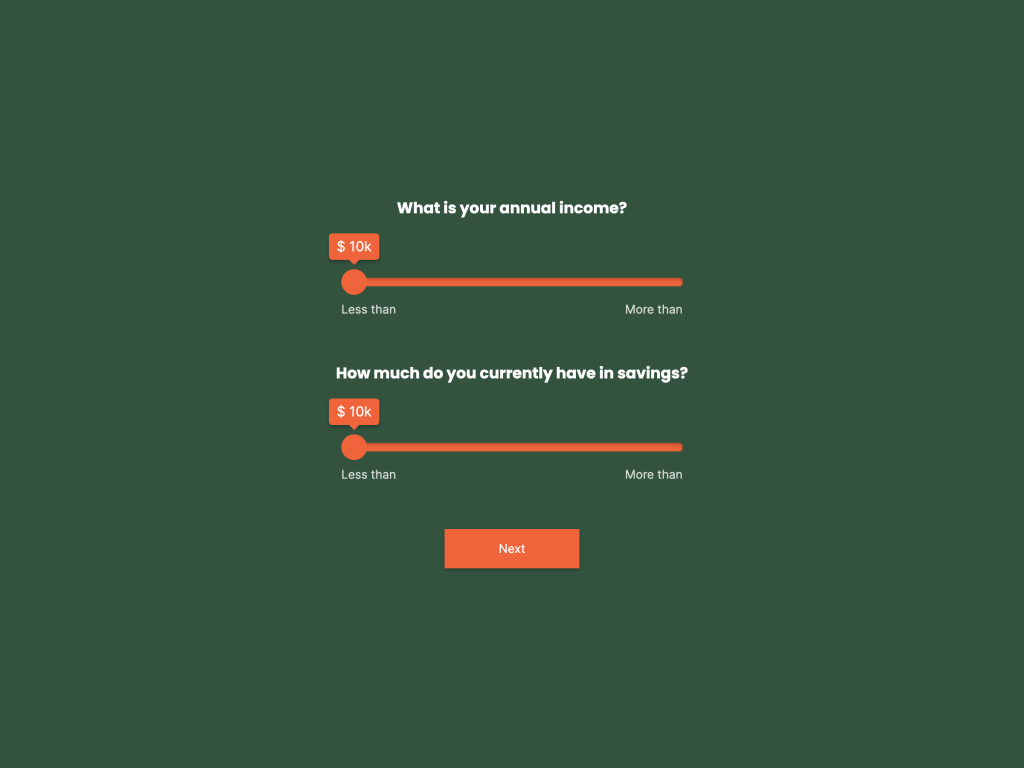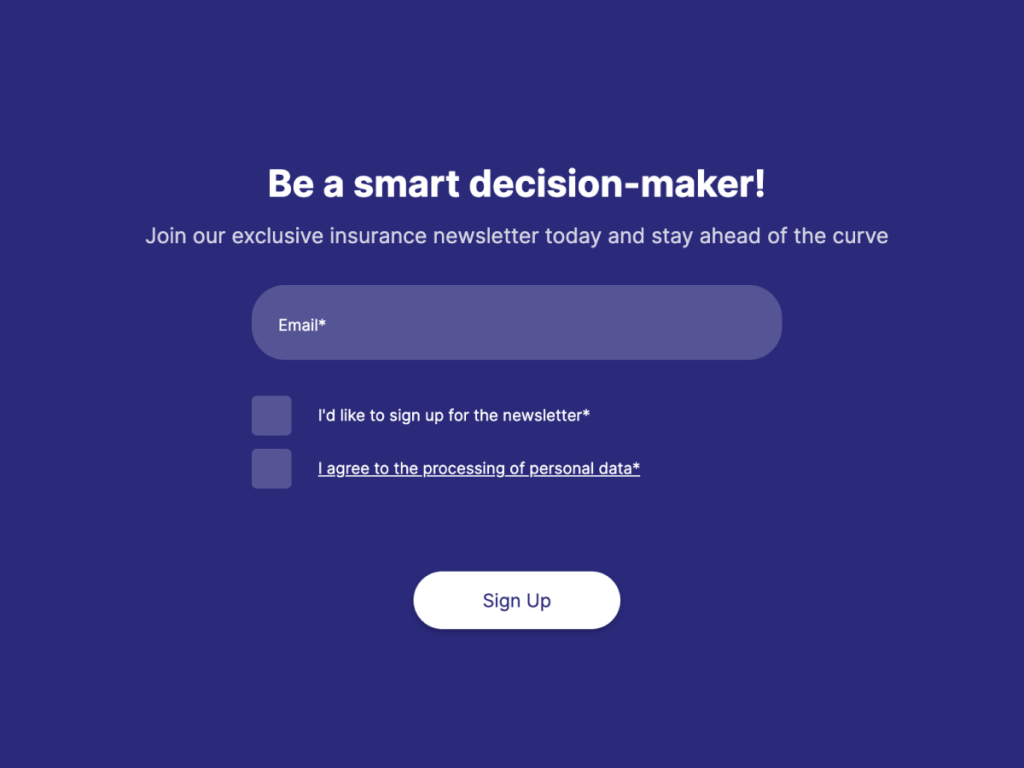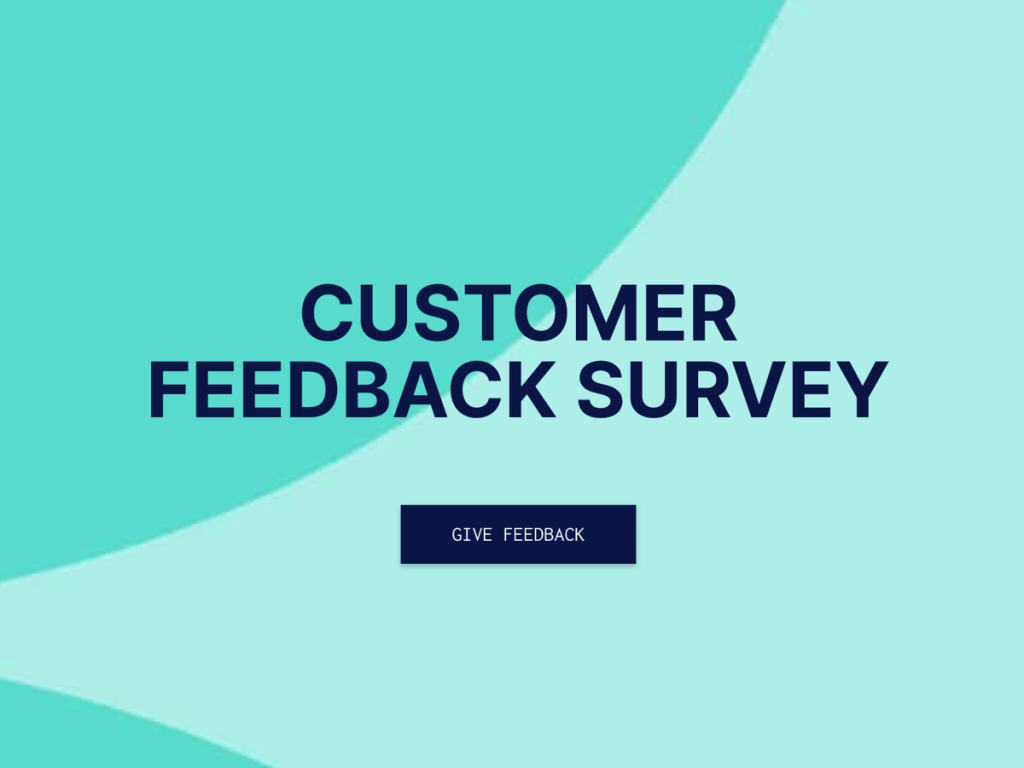According to Epsilon, 80% of customers are inclined to purchase when brands offer personalized experiences. Furthermore, an overwhelming 90% of consumers find personalization to be appealing.
The key to achieving this level of personalization lies in comprehending the needs and preferences of your customers. Simply providing a remarkable product or service is no longer sufficient—you need to effectively reach your target market and establish a deeper connection with them.
One effective way to achieve this is through E-commerce SEO tools. Powerful SEO tools enable you to delve deep into customer behavior, analyze demographics and preferences, and identify their motivations and needs.
This article will explore the top SEO tools for in detail and how they can provide valuable insights about your customers and help optimize your E-commerce business. Let's dig in!
Understand Consumer Behavior
E-commerce SEO tools like Google Analytics provide in-depth user behavior insights. This comprehensive platform tracks the pages they visit, the products they browse, and the actions they take on your website. With this knowledge, you can optimize your website's user experience, enhance navigation, and strategically position your products or services.
However, as easy as it may sound, understanding your customer psychology is intricate and influenced by multiple factors. To gain meaningful insights into your customers, we can break down the study into the following two categories:
Analyze Customer Demographics and Preferences
You can easily collect demographic data such as age, gender, location, and language preferences using advanced E-commerce tools and solutions like SEMrush and Moz. These advanced tools offer features that analyze your website's traffic and provide demographic insights.
If you need more specific information, such as product preferences, you can also use tools like involve.me to craft lead magnets such as quizzes, forms, product finders, surveys, and custom calculators. Begin by searching for a suitable template:
Create Custom Quizzes, Surveys, Forms
Start with a template code free
Consequently, you can segment your customers into distinct groups, allowing you to customize your messaging and offers accordingly. For instance, if your data reveals a higher concentration of young adults, you can adapt your language and design aesthetics to better appeal to their tastes.
Identify Customer Motivations
Powerful tools like BuzzSumo enables businesses to discover the most popular content related to their industry. By examining what topics and trends resonate with your target audience, you can produce compelling content addressing their needs and desires.
Furthermore, social media marketing tools like Hootsuite or Sprout Social enable you to monitor conversations and sentiments surrounding your brand. This analysis helps you gauge customer feelings and perceptions and adapt your strategies accordingly.
Uncover Customer Insights Through Data Analysis
In this digital age, businesses have access to abundant data that can provide invaluable insights into customer behavior. Every click, every purchase, and even every pause offers a story—a glimpse into a customer's desires, needs, and preferences.
Here, data analysis emerges as the most potent tool that can transform these seemingly random pieces of information into actionable insights. By using data analytics, identifying trends and patterns, and implementing personalized targeting strategies, businesses gain an edge in the dynamic market.
But why is it crucial, and what are the central pillars of this process? Let's explore the importance of data analysis in uncovering customer insights and outlines three key aspects of this process:
Use Data Analytics To Understand Customer Psychology
Data analytics begins by utilizing the right tools and technologies that help comprehend the intricate web of customer behavior. Various tools are specifically designed to assist in comprehending customer behavior, whether it's SEO tools for Etsy or competitor analysis tools for Google: all provide insights regarding your customer's behavior.
These tools offer a range of functionalities, enabling businesses to extract and interpret relevant data points from their customer interactions. Some businesses also hire Scala developers or Python developers to perform data processing.
This analytical approach helps companies answer critical questions such as:
What are the preferred channels through which customers engage with the brand?
What products or services are most popular among different customer segments?
What psychological factors influence the consumer decision-making process?
How do customers interact with the brand across various touchpoints?
These insights serve as a compass, guiding companies in their decision-making processes to effectively tailor their strategies to meet customer expectations.
Identify Trends and Patterns
Data analysis goes beyond merely understanding customer behavior—it helps businesses identify trends and patterns that, otherwise, might go unnoticed. By exploring historical data, businesses can uncover hidden correlations, emerging trends, and patterns that hold significant implications for their operations.
For example, consider a retailer that utilizes data analysis. They might uncover that particular product categories witness a significant uptick in sales during specific seasons or events. Armed with this valuable insight, the retailer can proactively stock up on inventory, create targeted marketing campaigns, and optimize pricing strategies to capitalize on the anticipated increase in demand. This data-backed strategy not only boosts customer satisfaction but also fuels revenue expansion for the company.
Personalization and Targeting Strategies
Customers crave personalized experiences. Data analysis empowers businesses to deliver precisely that by enabling the development and implementation of tailored targeting strategies.
For instance, an E-commerce company can leverage data analysis to identify distinct customer segments based on demographics, purchasing history, and browsing behavior. With this knowledge, the company can personalize the website experience for each segment, displaying relevant products, offers, and recommendations. Businesses can enhance engagement, foster brand loyalty, and drive conversions by delivering personalized content to focus groups of customers.
Utilizing E-commerce SEO Tools for Customer Insights
Using E-commerce SEO tools can unlock a treasure trove of customer insights. These insights not only refine your online presence but also elevate customer engagement to new heights.
Let's delve into some essential E-commerce SEO tools, their price points, target audiences, and steps to kickstart your journey:
Keyword Research and Analysis
Comprehensive keyword research and analysis lie at the heart of a successful SEO strategy. This foundational step propels your website's visibility and connects you with your intended audience. Yet, you may find yourself contemplating how to find the best keywords for your website.
But fear not, as three remarkable E-commerce SEO tools can lend a helping hand in this endeavor:
1.SEMrush ($129.95/month - Pro Plan)
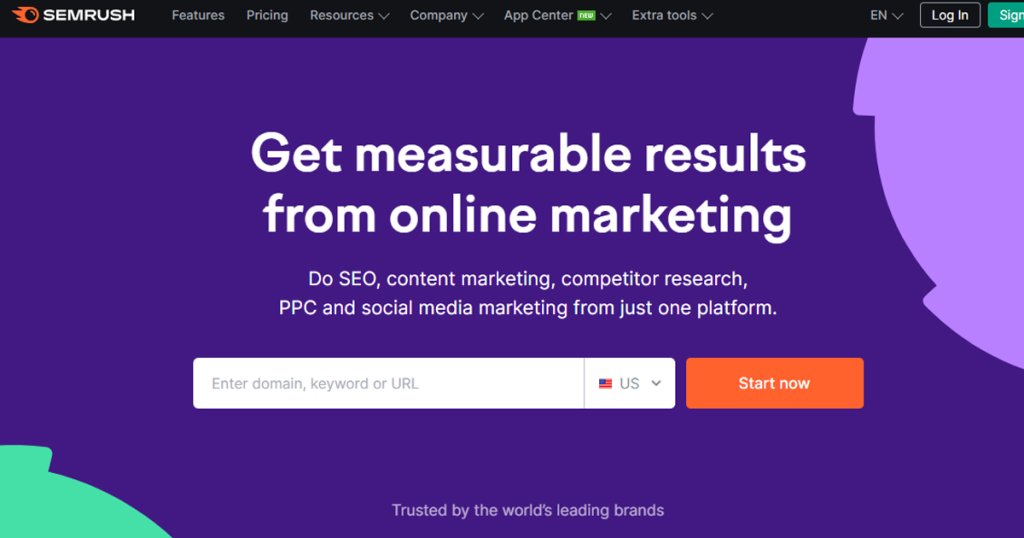
Overview of the Tool: SEMrush is a comprehensive SEO tool offering many features, including keyword research. It provides valuable insights into keyword volume, competition, and related keywords. Through SEMrush, businesses can discover effective keywords and enhance their content strategy accordingly.
Ideal for: Large-scale enterprises with ample resources aiming to attain comprehensive keyword insights.
How to Sign up: Go to SEMrush's official website, log in with your email, and select the plan you want to opt for. Once the payment goes through, you can enter your domain or keywords and unveil valuable keyword metrics like volume, competition, and related terms. Utilize these insights to optimize your content effectively.
2.Ahrefs ($99/month - Lite Plan)

Overview of the Tool: Ahrefs stands out for its comprehensive capabilities in keyword research. When in the hands of adept marketers, Ahrefs revolutionizes the keyword research experience, offering a vast keyword database and crucial metrics like keyword difficulty, search volume, and click-through rate (CTR). Consequently, businesses are able to pinpoint untapped keyword prospects and fine-tune their content strategy to allure organic traffic.
Ideal for: Marketers focused on keyword exploration and competition analysis.
How to Sign up: Create an account using your email and log in to access a vast keyword database. Discover keyword difficulty, search volume, and click-through rate. These metrics empower you to tailor content for maximum organic traffic.
3.Google Keyword Planner (Free)

Overview of the Tool: Created by Google, the Keyword Planner tool is specifically crafted to assist businesses in uncovering pertinent keywords for their SEO endeavors. This resource offers valuable insights into the search volume, trends, and level of competitiveness associated with each keyword. With the help of this tool, businesses can identify high-demand keywords and seamlessly incorporate them into their website content with strategic precision.
Ideal for: Budget-conscious businesses looking for Google-powered keyword suggestions.
How to Sign up: Access Google Keyword Planner within Google Ads. Enter relevant keywords, and analyze search volume, trends, and competitiveness. Seamlessly integrate high-performing keywords into your website's content.
Competitor Analysis
Surpassing rivals in the E-commerce arena demands a profound understanding of their tactics and strengths. Competitor analysis tools empower you to gain a competitive edge. Here are three E-commerce SEO tools for dissecting your competition:
1.SimilarWeb (Starting from $125 Per Month)
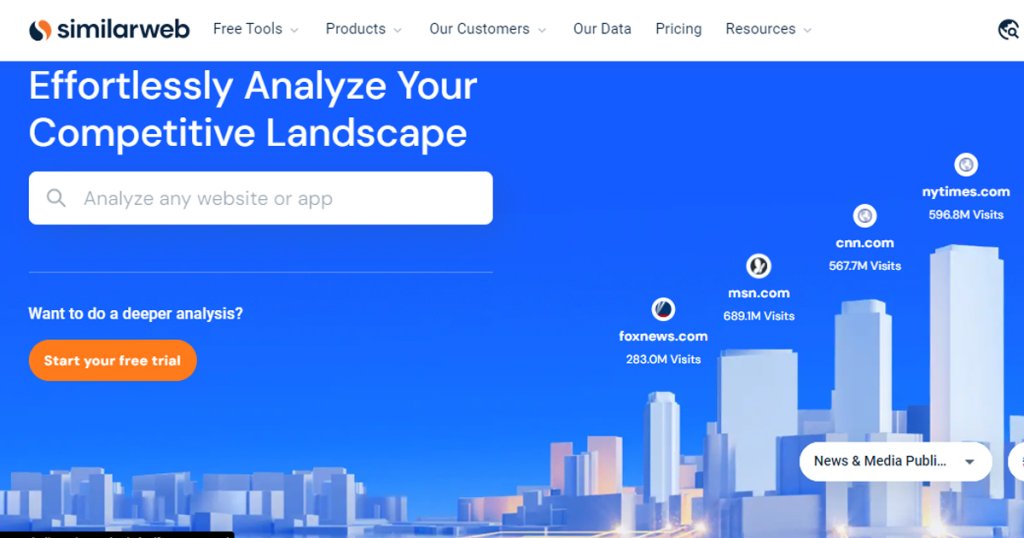
Overview of the Tool: SimilarWeb is an invaluable tool that provides data on website traffic, referral sources, user engagement metrics, and popular content. By analyzing competitors' data on SimilarWeb, E-commerce businesses can identify successful strategies and adapt them to enhance their own online presence.
Ideal for: Businesses seeking a holistic view of their competitors' online performance.
How to Sign up: Request access to SimilarWeb's data insights. Explore competitor traffic, referral sources, and user engagement. Adapt successful strategies to enhance your online presence.
2.SpyFu ($33/month - Basic Plan)
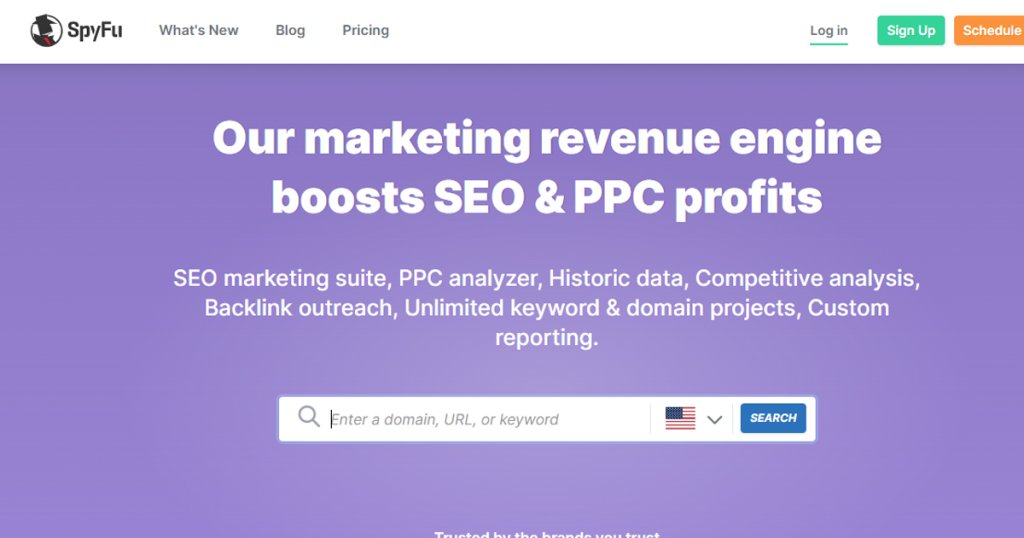
Overview of the Tool: SpyFu is a comprehensive competitor analysis tool that uncovers competitor keywords, ad campaigns, and backlink strategies. Employing SpyFu, both small and large enterprises can refine their strategies and outrank competitors in search engine results.
Ideal for: Small, medium, and large enterprises aiming to uncover competitor keywords and ad strategies.
How to Sign up: Enroll in SpyFu with your Gmail address and unveil competitor keywords, ad campaigns, and backlink tactics. Transform this knowledge into superior SEO strategies that propel you ahead in search results.
3.Owletter ($19/month - Basic Plan)
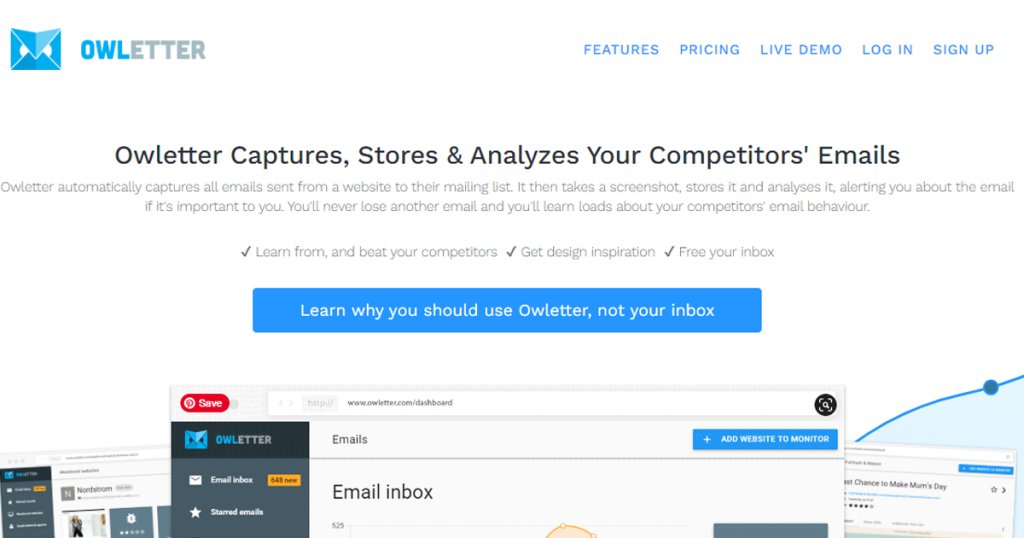
Overview of the Tool: Owletter is an email marketing intelligence tool specializing in competitor analysis. It helps you monitor your competitors' email campaigns, track their email performance metrics, and gather insights to improve your email marketing strategies.
Ideal for: Email marketers focused on competitive intelligence.
How to Sign up: Create your account on Owletter to monitor competitors' email campaigns and metrics. Leverage insights to refine your email marketing approach and gain an edge in customer outreach.
Content Optimization for Customer Engagement
Engaging and relevant content is the cornerstone of any successful E-commerce website. Businesses can attract and retain their intended audience by optimizing content for SEO and customer engagement.
Here are three E-commerce SEO tools that can help you with content optimization:
1.Yoast SEO (Free - Premium Version Available)
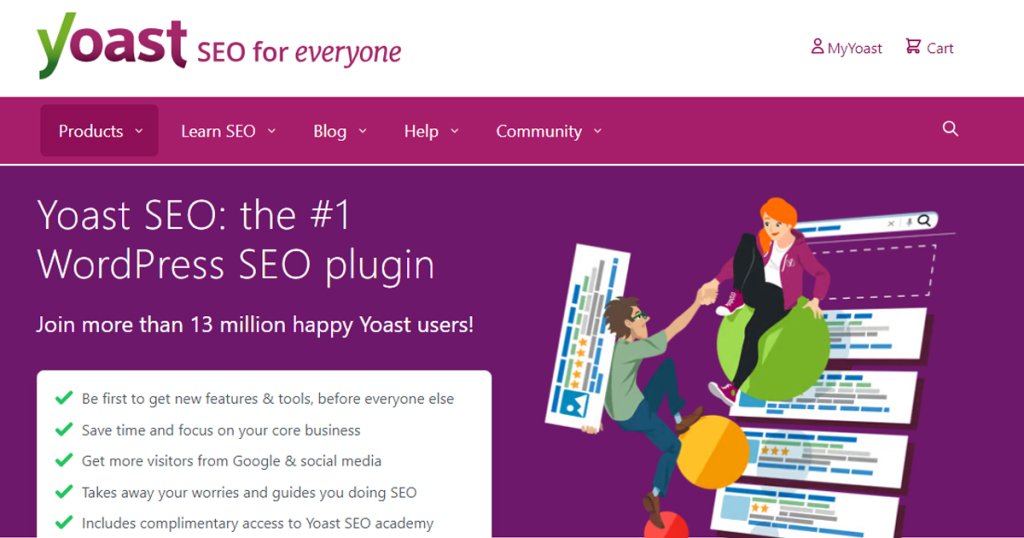
Overview of the Tool: Yoast SEO is a robust WordPress plugin that provides actionable insights for optimizing content. From recommendations on keyword usage and readability to meta tags, and content structure, Yoast is your tool for all uses. Following Yoast SEO's suggestions can improve your content's overall quality and SEO-friendliness.
Ideal for: WordPress users committed to content excellence.
How to Sign up: Install the Yoast SEO plugin on your WordPress website. Follow its recommendations for keyword usage, readability, meta tags, and content structure. Elevate your content's quality and SEO prowess effortlessly.
2.BuzzSumo ($199/month - Basic Plan)
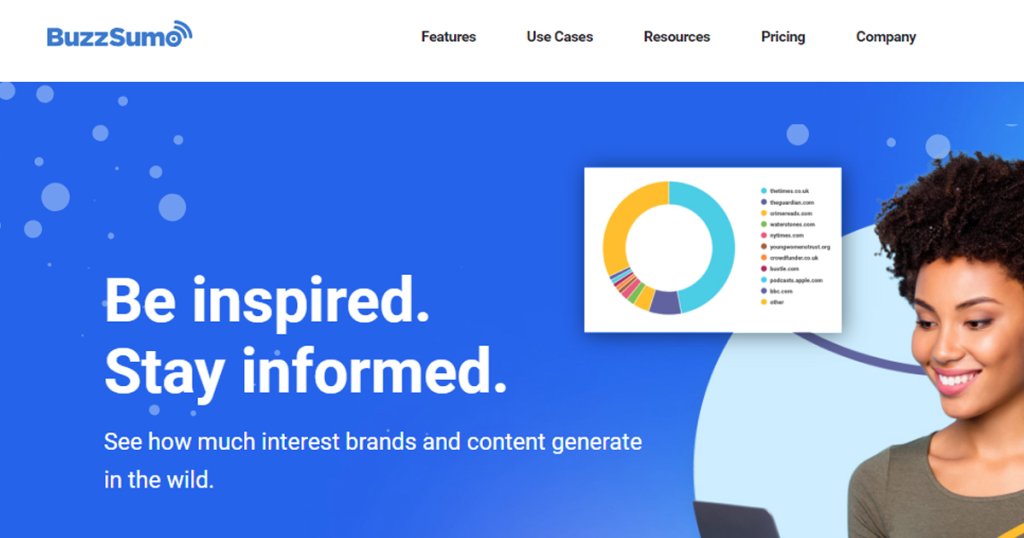
Overview of the Tool: BuzzSumo stands as a powerful SEO tool for content discovery and analysis. This tool empowers businesses to unearth the most widely circulated and captivating content within their respective industries. By comprehending the specific subjects and formats that resonate with the target audience, E-commerce businesses can easily craft magnetic content.
Ideal for: Content creators seeking inspiration from top-performing industry content.
How to Sign up: Secure a BuzzSumo subscription. Identify the most circulated and engaging content in your field. Craft content that resonates with your audience, fueling customer engagement and social shares.
3.CoSchedule Headline Analyzer (Free - Premium Version Available)
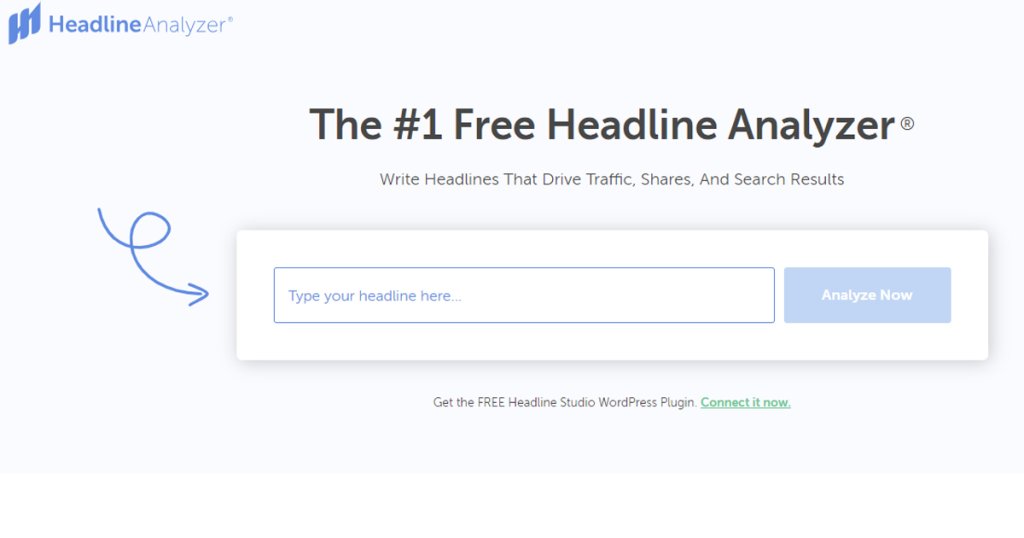
Overview of the Tool: CoSchedule Headline Analyzer helps businesses optimize their headlines for maximum impact. Employing this tool, you can gain insights into headline length, emotional appeal, and power words. Moreover, this tool allows businesses to create attention-grabbing headlines that entice users to click and explore their content further.
Ideal for: Small to large-scale businesses aiming to craft attention-grabbing headlines.
How to Sign up: Embrace CoSchedule Headline Analyzer to gauge headline length, emotional appeal, and power words. Forge captivating headlines that attract users to explore your content further.
Tracking and Analyzing User Behavior
Understanding user behavior is paramount to transforming your business into a customer-centric powerhouse. Utilizing E-commerce SEO tools serves as your guiding star in this journey.
These tools reveal the intricate web of user interactions and highlight opportunities for a captivating user experience. By monitoring user data, businesses gain insights that fuel data-driven decisions to optimize website performance and enhance the user experience.
Here are three essential E-commerce SEO tools, pivotal for tracking and analyzing user actions:
1.Google Analytics (Free)
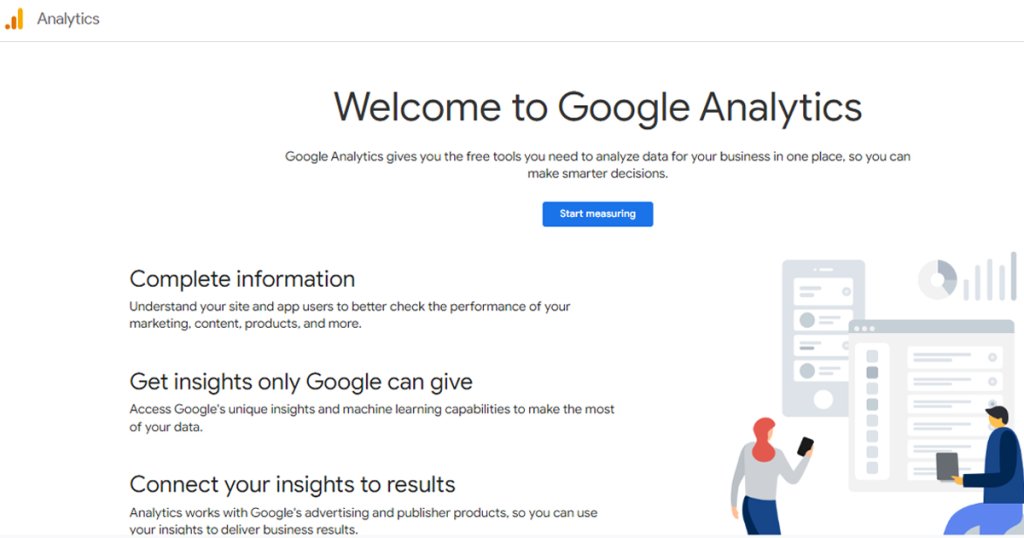
Overview of the Tool: Google Analytics is a robust web analytics tool. GA provides businesses comprehensive data on website traffic, user demographics, bounce rates, and conversion rates. By analyzing this data, businesses can gather insights into user behavior, pinpoint areas for improvement, and devise more effective marketing strategies.
Ideal for: Every online business (big or small) craving comprehensive insights into user behavior.
How to Sign up: Create a GA account with your email address and integrate Google Analytics into your website. Dive into website traffic, user demographics, bounce rates, and conversions. Unearth behavioral patterns and refine marketing strategies.
2.Hotjar (Free - Premium Version Available)
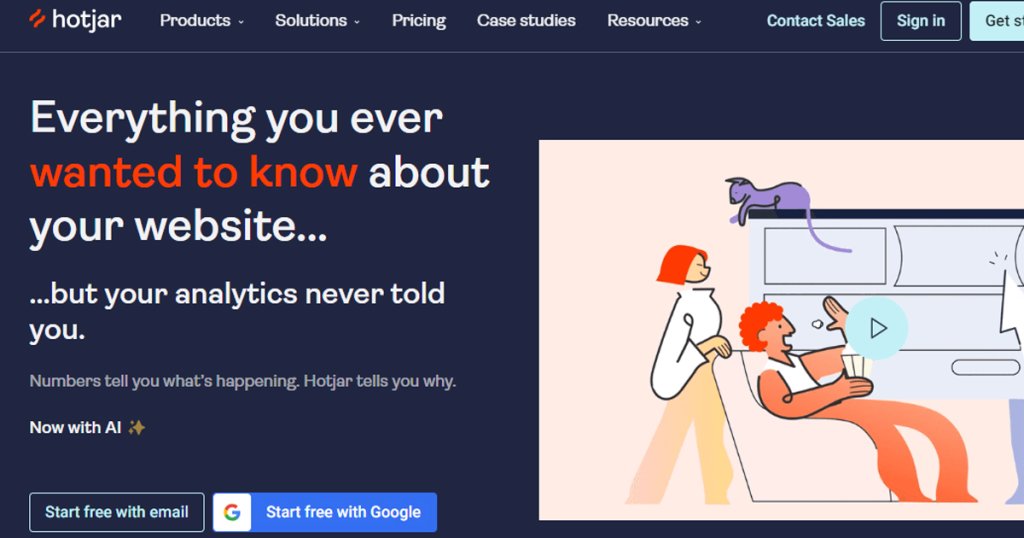
Overview of the Tool: Hotjar is a user behavior tracking tool that offers heatmaps, session recordings, and user feedback features. This powerful E-commerce tool visualizes user interactions and identifies areas of the website that may be causing confusion or friction. With Hotjar, businesses can optimize their website's usability and enhance its user experience.
Ideal for: Medium-sized businesses seeking to visualize user interactions and optimize usability.
How to Sign up: Enroll in Hotjar's Plus plan by creating an account for free. Leverage heatmaps, session recordings, and user feedback features. Identify areas of confusion or friction, enhancing your website's usability and user experience.
3.Crazy Egg ($29/month - Basic Plan)
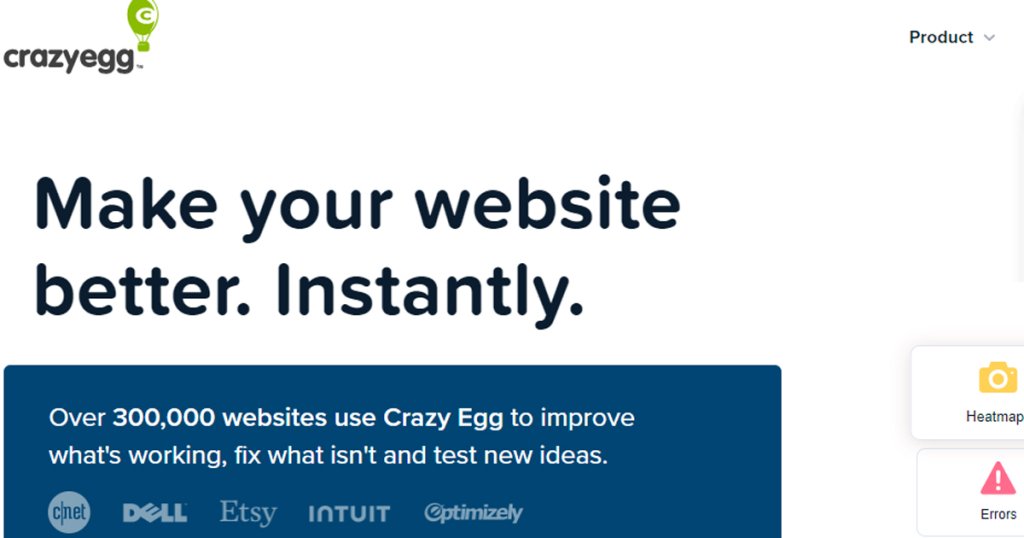
Overview of the Tool: Crazy Egg stands out as an exceptional tool for tracking user behavior. It offers various features, including heatmaps, scroll maps, and click reports, all designed to provide invaluable insights into how users engage with a website's content. These insights encompass where users direct their attention and which specific elements are pivotal in driving conversions.
Ideal for: Large-sized enterprises wanting to decipher user interactions and drive conversions.
How to Sign up: Set up your account using your email address and opt for Crazy Egg's Basic plan. Explore heatmaps, scroll maps, and click reports. Grasp user attention points and conversion drivers, enabling targeted optimizations for improved performance.
Bottom Line
E-commerce SEO tools are pivotal for businesses venturing into the intricate domain of the online ecosystem. These advanced tools are more than just a utility; they provide a strategic blueprint.
Decoding consumer behavior, preferences, and evolving trends, SEO tools are instrumental in unlocking the secrets of your customers' minds. Use these in-depth insights to fine-tune your marketing strategies and craft a bespoke online user experience for your business. Happy mind reading!



